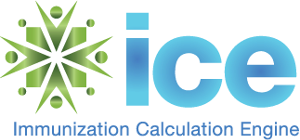 In August 2022 the Office of the National Coordinator for Health Information Technology (ONC) launched the 2022 Public Health Data Systems Task Force as a subcommittee of the Health Information Technology Advisory Committee (HITAC). The task force will meet through the beginning of November to present recommendations continuing and building upon the work of the 2021 task force. Members of the task force include individuals from various levels of government, relevant public health associations, and industry partners. Specifically, the task force is focused on the certification criteria for EHR products certified under the ONC Health IT Certification Program that cover transmission of data from EHRs to public health in these domains...
In August 2022 the Office of the National Coordinator for Health Information Technology (ONC) launched the 2022 Public Health Data Systems Task Force as a subcommittee of the Health Information Technology Advisory Committee (HITAC). The task force will meet through the beginning of November to present recommendations continuing and building upon the work of the 2021 task force. Members of the task force include individuals from various levels of government, relevant public health associations, and industry partners. Specifically, the task force is focused on the certification criteria for EHR products certified under the ONC Health IT Certification Program that cover transmission of data from EHRs to public health in these domains...
 On January 18, 2022 the Office of the National Coordinator for Health Information Technology (ONC) finally released version 1 of the Trusted Exchange Framework, Common Agreement and the QHIN (Qualified Health Information Network) Technical Framework (QTF). Several years in the making, these documents represent the latest attempt at initiating a national health information exchange in the United States. This project is being managed by ONC’s Recognized Coordinating Entity (RCE), The Sequoia Project, and was inspired by both the HITECH Act and 21st Century Cures Act.
On January 18, 2022 the Office of the National Coordinator for Health Information Technology (ONC) finally released version 1 of the Trusted Exchange Framework, Common Agreement and the QHIN (Qualified Health Information Network) Technical Framework (QTF). Several years in the making, these documents represent the latest attempt at initiating a national health information exchange in the United States. This project is being managed by ONC’s Recognized Coordinating Entity (RCE), The Sequoia Project, and was inspired by both the HITECH Act and 21st Century Cures Act.
 The Immunization Calculation Engine (ICE) is a state-of-the-art open-source software system that provides clinical decision support for immunizations (CDSi), commonly referred to as “immunization forecasting.” ICE has two major components: The ICE Web Service evaluates a patient’s immunization history and generates the appropriate immunization recommendations for the patient. The Clinical Decision Support Administration Tool (CAT) is a web-based GUI tool that enables subject matter experts to manage ICE rules and configuration without the intervention of software developers.
The Immunization Calculation Engine (ICE) is a state-of-the-art open-source software system that provides clinical decision support for immunizations (CDSi), commonly referred to as “immunization forecasting.” ICE has two major components: The ICE Web Service evaluates a patient’s immunization history and generates the appropriate immunization recommendations for the patient. The Clinical Decision Support Administration Tool (CAT) is a web-based GUI tool that enables subject matter experts to manage ICE rules and configuration without the intervention of software developers.